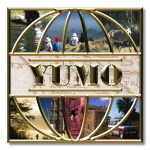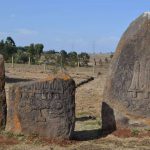Climate
Ethiopia, despite being close to the equator, has a moderately warm, even chilly climate, due to the relatively high altitude of the country. There are two rainy seasons, irregular short rains from late January to early March, and longer rains from June to September.
Dates and Time
Ethiopia follows the Julien calendar, consisting of twelve months of thirty days, and a thirteenth month of five days (six in a leap year). So now you understand the slogan “Thirteen Months of Sunshine”! The calendar is seven years and eight months behind the western (Gregorian) calendar.
Ethiopia is three hours ahead of GMT. Being so close to the equator gives Ethiopia almost twelve hours of daylight, so day and night are always the same length. Counting starts at 6.00am. Western 7.00am is 1.00am Ethiopian time. Noon Western is 6 o’clock Ethiopian, etc. So maybe now you understand our comment about not knowing what the time is during your stay!
Language
Amharic is the official language of Ethiopia, although English, Italian, French and Arabic are widely spoken. In areas outside of the larger cities and towns, indigenous languages are likely to be spoken – of which there are eighty-three, with some 200 dialects. The most common of these are Orominya and Tigrinya.
Visa and Immigration Requirements
A valid passport is essential and must be valid for six months beyond the arrival date. Tourist visas are available in advance from diplomatic missions, or on arrival at the airport in Addis Ababa.
Currency
The local currency is the Ethiopian Birr. There are one hundred centa in a birr. Denominations in 1, 5, 10, 50 and 100 birr. Five coins, 1, 5, 10, 25 and 50 centa.
There is no limit on the amount of foreign currency imported into Ethiopia, but it must be declared on arrival, using a currency declaration form. Currency declaration form may be completed and may be required by Customs on departure but is not normally regarded as compulsory for reasonable travel purposes. Foreign currency may be changed only at authorised banks and hotels.
Vistors may change back any excess birr into foreign currency at the airport, but you must bring with you all receipts for exchange transactions.
Energy
Ethiopia uses 220 volts and 50Hz. It is best to bring your own circular two prong adaptor and transformer if necessary.
Health and Medical Facilities
Certain aspects of health and health precautions need specialist advice. See the East Africa Traveller’s Health Information (US CDC) page for more travel-related health information.



